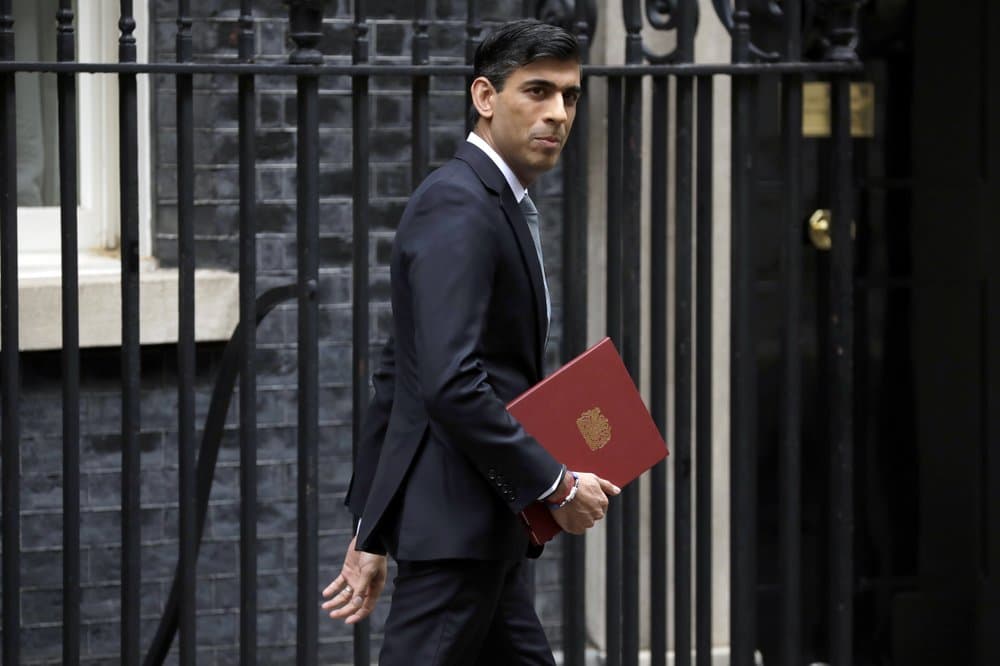LEICESTER, United Kingdom – Catholic charities in England and Wales are calling on the government to keep a £20 ($26) a week welfare benefit which is due to expire next March.
In April, the Chancellor, Rishi Sunak, increased both Universal Credit – the UK’s main welfare scheme – and the Working Tax Credit by £20 a week as a temporary measure during the COVID-19 coronavirus pandemic.
Sunak is expected to make a decision next week on whether or not to extend the benefit increase.
On Nov. 19, leaders of 22 local branches of Caritas wrote the Chancellor, asking him to make the increase permanent.
“The £20 uplift has prevented a significant, sharp increase in poverty among many households, following a long period of income stagnation and benefit freezes. Your forthcoming decision on the uprating of benefits from April 2021 is critical for sustaining both individuals and family life, and to prevent wider, long-term escalation in costs to the public purse,” the letter states.
RELATED: Catholic leaders call for UK government to end 2-child limit for public benefits
The Caritas leaders also asked Sunak to extend the benefit to people on Employment Support Allowance, Income Support and Job Seekers’ Allowance. These welfare schemes include many people with disabilities, long-term conditions, and fulltime carers.
“A decision this month would help families plan with more certainty beyond the winter,” the authors say.
According to the Joseph Rowntree Foundation, a thinktank working to solve poverty in the UK, nearly 700,000 people could be thrown into poverty if the benefit increase is ended. In addition, 16 million people will be affected by the loss of income.
The Caritas leaders also allude to the recent debate over allowing the extension of the free school meals scheme during school holidays, so children in poverty can be guaranteed at least one nutritious meal a day.
The cause was highlighted by English soccer star Marcus Rashford, who managed to get the government to change course on the issue.
RELATED: Catholic charities praise English soccer star’s food voucher win
In their letter, the Catholic charities said while welcome, the free meal program wasn’t enough to help families in poverty.
“While we recognise that school meal voucher provision has short-term benefits, and is welcomed by many parents, an increase in the cash available to households in low incomes is preferable,” the letter states.
“An increase in payments through the benefits system would more fully respect the dignity and choice available to families, and de-stigmatise the experience of shopping for basics. While the voucher system is tied to certain retailers, cash payments have the potential to stimulate the economy through parents’ ready access to a wider range of local community retailers outside the voucher system, providing a more level playing field for small businesses. Cash payments have the best potential to reduce additional burdens on schools and local authorities, and to encourage cooperation with community-led initiatives that enable households to participate well in dignified activities beyond receipt of food,” the letter continues.
Ben Gilchrist, the Chief Executive of Caritas Diocese of Shrewsbury, said many urban areas in the Northwest of England have high levels of child poverty, and Catholic charitable institutions are at the “forefront” of efforts to get money and food to those who need it.
But he said their work is “not nearly enough” to solve the problem.
“Benefits had been frozen and falling behind the cost of living, even before the pandemic. We’re also working with teachers and families to alleviate the strain of the pandemic on mental health, with many more households facing job losses and a long period of uncertainty. That’s why it’s imperative that the Chancellor acts swiftly and decisively now to keep the £20-a-week lifeline,” Gilchrist said.
RELATED: UK faith leaders call for government commission to tackle child poverty
Poverty reduction is one of the devolved powers in the United Kingdom, and under the authority of each individual country. Currently, England is the only part of the UK without a national poverty strategy.
A few weeks ago, Cardinal Vincent Nichols, the archbishop of Westminster and president of the Catholic Bishops’ Conference of England and Wales, joined other faith leaders in the United Kingdom to call on Prime Minister Boris Johnson to establish a commission “with the mandate and resources to tackle child poverty in England.”
Follow Charles Collins on Twitter: @CharlesinRome















